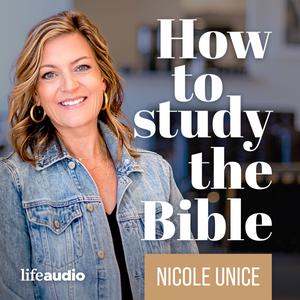
How to Study the Bible - Bible Study Made Simple
Nicole Unice, Bible Study Coach and Author of the Alive Method of Bible Study
As Christians, we want to experience God through the Bible… we really do!But our good intentions fall flat when reading the Bible just doesn’t seem to help us experience God in a real way. What should feel dynamic and important and alive often feels confusing and boring and irrelevant. But it doesn’t have to feel this way.In this bible study podcast, pastor and Bible teacher Nicole Unice brings life back to reading the Bible by walking listeners through her Alive Method of Bible study, helping us personally encounter God through His Word by giving us a practical, clear road map for understanding, interpreting and applying Scripture to our lives. Topics covered in this podcast: 💡 Three Common Obstacles to Understanding the Bible💡The Basics of Bible Study (Observation, Interpretation) and How to Apple the Bible to Your Life💡Deep Dive into Bible Studies by Books of the Bible (We've covered Ecclesiastes, Romans, Matthew, and more!)💡 Topical Bible study lessons on Joy, Contentment, Prayer and more💡 Spiritual Rhythms: Creating New Rhythms in Your Life💡 4 Principles You Need to Interpret Difficult Scripture
- 23 minutes 40 secondsWhat Do I Do When God Seems Absent? (A Bible Study on John 11)
Today, we're digging into a story of grief and joy in John 11, the story of Jesus raising Lazarus from the dead. We'll see the profound ways in which Jesus interacts with individuals experiencing grief and sorrow, demonstrating compassion and understanding by meeting each person where they are in their emotional journey.
What Does It Say?
Read along with us in John 11.What’s the backstory
it's really important here to notice that we're in a sorrowful moment of an untimely death. This is a hard reality, a hard truth happening in this world right now. And what's more with Mary and Martha to lose Lazarus, their brother, who, you know, likely was supporting them and providing them with safety in a home because that's how it was in that culture. They've lost their brother whom they love, but also, this is an untimely death, and they really believe that Jesus could have done something about it. And yet these days have gone by. Lazarus has been in the tomb for four days. The four is important a little bit in the backstory because some would say that Jewish leaders would maybe say the soul would hang around a body for a while, maybe try to reenter the body. So they're like, it's like four days is not just kind of dead. It's really dead. It's like a long enough that, okay, now it's time to really say goodbye. This is permanent.
What does it mean?
Two things that came to mind that really stood out for me this week in this passage. The first is this: there's more to this life than sorrow and death. All the time, there's always more going on than just the sorrow and death that we might see. That's the first thought, just to challenge you in your mind. The second one for me, and of course there's many principles you can pull out from this passage, but the second principle for today, Jesus doesn't just lead us to the resurrection, he is the resurrection. Like, that is a mystery to ponder, to pray on, to ask, like, what does that mean for my life?
What does it mean for me?
Two things that came to mind that really stood out for me this week in this passage. The first is this: there's more to this life than sorrow and death. All the time, there's always more going on than just the sorrow and death that we might see. That's the first thought, just to challenge you in your mind. The second one: Jesus doesn't just lead us to the resurrection, he IS the resurrection. Like, that is a mystery to ponder, to pray on, to ask, like, what does that mean for my life?
Second: the disciples were disappointed and disconcerted by Jesus's choices. Martha's disappointed, but intellectually trying to process the why. Mary is just lost in her grief, lost in her emotions. How do you react to your struggles? How do you handle sorrow? How do you handle pain? What's your response? Do you try to control it? Do you try to fix it? Do you try to solve it? Do you find yourself spinning up on all of these different plans and all of these different contingencies that you yourself are going to figure out? Or do you slow down enough to actually bring God your sorrow? Have you thought about taking that burden before him and just saying, Lord, are you here? You feel absent to me in this thing. Because in many ways, that's what Mary and Martha said. Both of them said to him, if you'd been here, Lazarus wouldn't have died. You've disappointed me. Why is it this way? Why were you absent in my time of need? If you have that question, bring it to the Lord. He can handle it.
THIS WEEK'S RESOURCES:
Sign up for Nicole's newsletter and get regular encouragement straight to your inbox: https://nicoleunice.com/realtalk/
Nicole’s Newest Book: Not What I Signed Up For
When you go to NicoleUnice.com/notwhatisignedupfor you'll get the intro, first chapter and a free prayer guide!
Find all of Nicole's books and resources on Amazon or Barnes & Noble
Discover more Christian podcasts at lifeaudio.com and inquire about advertising opportunities at lifeaudio.com/contact-us.
20 January 2025, 11:00 am - 26 minutes 22 secondsWhat Does God Want for Me in 2025? Discerning God's Will for Your Life
Hey friends, we're pausing our walk through John to speak to the moment we're in, at the beginning of January, to answer a question that I often get asked: What does God want for my life? How can I discern his will for me?
To that end, this week, we're studying Romans 12:1-2 and Proverbs 3:5-6.
THIS WEEK'S RESOURCES:
Sign up for Nicole's newsletter and get regular encouragement straight to your inbox: https://nicoleunice.com/realtalk/
Nicole’s Newest Book: Not What I Signed Up For
When you go to NicoleUnice.com/notwhatisignedupfor you'll get the intro, first chapter and a free prayer guide!
Find all of Nicole's books and resources on Amazon or Barnes & Noble
Discover more Christian podcasts at lifeaudio.com and inquire about advertising opportunities at lifeaudio.com/contact-us.
13 January 2025, 11:00 am - 15 minutes 54 secondsIn Purpose: Mary (The Lord Is With You: Finding Purpose in 2025)
This week, in the final episode of our Advent and Christmastide series, we are studying Mary and her response to God's call on her life, and how that response can so inform the way we truly go into 2025.
1. WHAT DOES THE BIBLE PASSAGE SAY?
Luke 1:28-30; 38: The angel went to her and said, “Greetings, you who are highly favored! The Lord is with you.” 29 Mary was greatly troubled at his words and wondered what kind of greeting this might be. 30 But the angel said to her, “Do not be afraid, Mary; you have found favor with God.
38 “I am the Lord’s servant,” Mary answered. “May your word to me be fulfilled.” Then the angel left her.
Maybe true for Mary, but is it true for us?
2. WHAT'S THE BACKSTORY?
What do we know about Mary:
-She knew some scripture
-She was faithful
-She was among the believers [not venerated, but in community]Acts 1:14 (They all met together and were constantly united in prayer, along with Mary the mother of Jesus, several other women, and the brothers of Jesus.)
Mary had no qualifications for being chosen.
This beginning also mirrors our beginning when it comes to receiving the good news.
All of the good news is contained here:
You who are highly favored.
In the context of the world, she is not highly favored. When we think of what makes someone highly favored, we tend to think of the examples we have in the world. But that wasn’t Mary at all.
3. WHAT DOES IT MEAN?
Accepting the incredible surprise of the good news means releasing control.
Receiving the gift of our favor means opening our hands to everything God gives. “I am the Lord’s servant, may your word be fulfilled.”
How great is the love the Father has lavished on us…that we would be called children of God! And that is what we are! 1 John 3:1
4. WHAT DOES IT MEAN FOR ME?
What sets Mary apart is her radical acceptance of God’s invitation, and what defines us as children of God is our radical acceptance of the same invitation.
Radical Acceptance:
God has not given up on me, no matter how I feel.
I do not need to try harder.
My pain and struggle is not wasted.
My false self protects me with:
I am what I do.
I am what I have.
I am what others think of me.
My true self:
I am. (I am worthy)
I am the Lord’s. (I belong)
I am the Lord’s servant. (I have purpose)
THIS WEEK'S RESOURCES:
Sign up for Nicole's newsletter and get regular encouragement straight to your inbox: https://nicoleunice.com/realtalk/
Nicole’s Newest Book: Not What I Signed Up For
When you go to NicoleUnice.com/notwhatisignedupfor you'll get the intro, first chapter and a free prayer guide!
Find all of Nicole's books and resources on Amazon or Barnes & Noble
Discover more Christian podcasts at lifeaudio.com and inquire about advertising opportunities at lifeaudio.com/contact-us.
6 January 2025, 11:00 am - 17 minutes 31 secondsIn Legacy: Bathsheba - Clinging to God's Promise to Restore Us
The Redemptive Story of Bathsheba
This week, we're diving into the life of Bathsheba, a significant yet often overlooked figure in Jesus' genealogy. Bathsheba's story is one of tragedy, power dynamics, and, ultimately, redemption.
Background of Bathsheba
Bathsheba is mentioned indirectly in the genealogy of Jesus: "David was the father of Solomon by the wife of Uriah." A title that emphasizes her relationship with her husband rather than her own identity. This choice of wording is significant; it highlights the injustice she faced and the power imbalance in her life. Bathsheba was not a woman of power or agency. In the patriarchal society of her time, she had no vote, no property, and little control over her own life.
The Scandal of King David
The narrative of Bathsheba is intertwined with King David's actions. David, driven by lust, summoned Bathsheba to his palace, knowing she was married to Uriah, one of his chief warriors. This act of adultery led to a series of tragic events, including Uriah's orchestrated death on the battlefield. The fault lies squarely with David, who abused his power and acted against God's law.
Consequences and Redemption
The consequences of David's sin were severe. The first child born to Bathsheba and David died, poignantly reminding us of the fallout from David's actions. However, Bathsheba's story does not end in despair. After mourning, she bore another son, Solomon, who would become a pivotal figure in Israel's history, known for his wisdom and for building the temple that David longed to construct.
Bathsheba's role evolved from victim of circumstance to powerful figure in the royal court. She became an intercessor for Solomon, advocating for his heirship. This transformation illustrates the theme of redemption that runs throughout her story.
What Does It Mean?
While we may not choose our backgrounds or the hardships we encounter, we do have the power to decide how we respond to those challenges. Bathsheba's journey from victimhood to a position of influence serves as a reminder that God can redeem even the most difficult situations.
Suffering and redemption are found in the stories of other women in Jesus's lineage: Tamar, Rahab, and Ruth. Each of these women faced significant trials but ultimately became part of God's redemptive plan.
This week, meditate on 1 Peter 5:6-11: cast your anxieties on God, who cares for you. God is intimately involved in your struggles and is committed to restoring you. The promise of restoration is a central theme in the lives of the women discussed, including Bathsheba.Scripture Referenced:
Matthew 1:6
1 Kings 1:28-31
Titus 3: 4-6
1 Peter 5:6-11What Does It Mean for Me?
God’s plan is uncomfortable--if we didn’t know it before with Tamar, Rahab, and Ruth - are we getting it by now? Do not count yourself out -- you are not your own judge!THIS WEEK'S RESOURCES:
Help Us Partner with Samaritan’s Purse! Our goal is to raise $3000 as a How to Study the Bible community! samaritanspurse.org/study
Sign up for Nicole's newsletter and get regular encouragement straight to your inbox: https://nicoleunice.com/realtalk/
Nicole’s Newest Book: Not What I Signed Up For
When you go to NicoleUnice.com/notwhatisignedupfor you'll get the intro, first chapter and a free prayer guide!
Find all of Nicole's books and resources on Amazon or Barnes & Noble
There is so much pain and hopelessness in our world. Men or women, young or old, rich or poor—pain doesn’t discriminate, and the problem of addiction is prevalent. It can feel like there’s no way out.
Whether you are in a dark valley or walking with someone through theirs, the Bible can be your companion to recovery and restoration. Millions of people have chosen the Life Recovery Bible and have been led to the true source of recovery—God himself.
Within its pages, you’ll find a powerful foundation for recovery with spiritual care, practical wisdom, and the life-changing Word of God. Guidance, support, and hope are here.
The Life Recovery Bible is packed with practical notes, helps, and themes that are fully integrated with the twelve-step program and point you back to your Creator, who alone is the source of freedom, hope, and victory.
Begin your journey today at LifeRecoveryBible.com.
Discover more Christian podcasts at lifeaudio.com and inquire about advertising opportunities at lifeaudio.com/contact-us.
30 December 2024, 11:13 am - 21 minutes 52 secondsIn Love: Ruth - Finding Hope in Ordinary Stories
The story of Ruth and Naomi profoundly illustrates how God can work through ordinary people and circumstances to create extraordinary legacies. Nestled within Jesus' genealogy, Ruth's life underscores the significance of faith, loyalty, and divine providence in the lives of seemingly ordinary individuals.
The Context of Ruth and Naomi's Story
Naomi, a widow, returns to her hometown in a vulnerable state, having lost her husband and sons. In a society where women had limited rights and protections, Naomi's situation was dire. She was penniless and childless, leaving her without the means to secure her future. Ruth, her daughter-in-law, who was not from the Israelite community, chose to stay with Naomi despite the risks involved. This act of loyalty and love is a testament to Ruth's character and her willingness to embrace Naomi's people and God.
The Power of Sacrificial Love
Ruth's declaration to Naomi, "Your people will be my people, and your God will be my God," signifies a deep commitment that transcends cultural and familial boundaries. This covenantal relationship exemplifies sacrificial love, a recurring theme throughout the narrative. Ruth's choice to glean in the fields—a practice established by God to protect the vulnerable—demonstrates her determination to provide for both Naomi and herself.
In a world that often prioritized power and conquest, Ruth's actions reflect a different kind of strength—one rooted in compassion and selflessness. This sacrificial love not only sustains Naomi but also sets the stage for God's redemptive plan to unfold.
Divine Providence in Ordinary Circumstances
The story also emphasizes how God orchestrates events in ordinary people's lives. Boaz, a distant relative of Naomi, becomes a key figure in their redemption. His willingness to act as a kinsman-redeemer illustrates the importance of community and the laws established to protect the vulnerable. The levirate law, which allowed widowed women to be cared for within their families, is a testament to God's concern for those in need.
As Ruth and Naomi navigate their challenges, they remain faithful to one another and to God. Their story culminates in the birth of Obed, who becomes the grandfather of King David, linking them to the lineage of Jesus. This extraordinary legacy emerges from their ordinary lives, showcasing how God can transform seemingly mundane circumstances into pivotal moments in history.
The Legacy of Faith: What Ruth's Story Means for You and Me
The legacy of Ruth and Naomi extends beyond their immediate circumstances. Their faithfulness and loyalty serve as a reminder that God values those who trust in Him, regardless of their background or status. The inclusion of Ruth, a Moabite woman, in Jesus' genealogy highlights God's desire to welcome all who seek Him, breaking down barriers and redefining community.
In the context of the Christmas season, this story encourages us to reflect on our own lives and the legacies we are building. Just as Ruth and Naomi's faithfulness led to an extraordinary outcome, we, too, are called to live out our faith in ordinary ways. By expressing love, kindness, and sacrificial acts in our daily lives, we contribute to a legacy that honors God and impacts those around us.
THIS WEEK'S RESOURCES:
Help Us Partner with Samaritan’s Purse! Our goal is to raise $3000 as a How to Study the Bible community! samaritanspurse.org/study
A free Christmas Eve liturgy for you and your family: nicoleunice.com/christmas
Sign up for Nicole's newsletter and get regular encouragement straight to your inbox: https://nicoleunice.com/realtalk/
Nicole’s Newest Book: Not What I Signed Up For
When you go to NicoleUnice.com/notwhatisignedupfor you'll get the intro, first chapter and a free prayer guide!
Find all of Nicole's books and resources on Amazon or Barnes & Noble
There is so much pain and hopelessness in our world. Men or women, young or old, rich or poor—pain doesn’t discriminate, and the problem of addiction is prevalent. It can feel like there’s no way out.
Whether you are in a dark valley or walking with someone through theirs, the Bible can be your companion to recovery and restoration. Millions of people have chosen the Life Recovery Bible and have been led to the true source of recovery—God himself.
Within its pages, you’ll find a powerful foundation for recovery with spiritual care, practical wisdom, and the life-changing Word of God. Guidance, support, and hope are here.
The Life Recovery Bible is packed with practical notes, helps, and themes that are fully integrated with the twelve-step program and point you back to your Creator, who alone is the source of freedom, hope, and victory.
Begin your journey today at LifeRecoveryBible.com.
Discover more Christian podcasts at lifeaudio.com and inquire about advertising opportunities at lifeaudio.com/contact-us.
23 December 2024, 11:00 am - 40 minutes 49 secondsHow to Teach Your Children the Value of Giving this Christmas - Bonus Episode with Everyday Prayers
In this special episode from Everyday Prayers, host Brook McGlothlin sits down with Kristy Graham, host of On the Ground with Samaritan’s Purse. In this inspiring conversation, they discuss how to shift the focus of Christmas from receiving to giving. Brooke shares how her family uses the Samaritan’s Purse Christmas Gift Catalog to help those in need, along with practical tips for making your holiday season more meaningful.
Brook and Kristy also invites you to join the Million Praying Moms Christmas Challenge, where you can feed 100 babies this December. For just $9, you can provide a meal for one baby and make a lasting difference this Christmas. Learn how you and your family can get involved, spreading love and generosity this holiday season.
Links & Resources:
- Samaritan’s Purse Christmas Gift Catalog – Make a Difference This Christmas
- Million Praying Moms Christmas Challenge – Feed 100 Babies This December
- FREE RESOURCE: Learn to Love Your Children Like God Does – A FREE 5-Day Devotion for Moms.
- Find more episodes of Everyday Prayers with Million Praying Moms
Discover more faith-based podcasts at LifeAudio.com or wherever you listen to podcasts!
Discover more Christian podcasts at lifeaudio.com and inquire about advertising opportunities at lifeaudio.com/contact-us.
18 December 2024, 12:00 pm - 16 minutes 52 secondsIn the Community: Rahab (How Rahab Redefines Belonging in Advent)
The Significance of Rahab in Jesus's Genealogy and the Redefinition of Community
This week, we're diving into the life of Rahab, the second woman mentioned in Jesus's genealogy, and how her narrative redefines the concept of community, especially during the Advent season. This exploration highlights several key themes: faith, kindness, and the transformative power of belonging.
Rahab's Background: Joshua 2
Rahab was a woman living in Jericho, a city that the Israelites were preparing to conquer as they entered the Promised Land under Joshua's leadership. Despite her profession as a prostitute, Rahab's story is one of faith and courage. When two Israelite spies came to Jericho, she recognized the power of their God and chose to protect them, hiding them from the king's soldiers. This act of bravery was rooted in her belief in the God of Israel, whom she had heard about through travelers.
Faith Leading to Action
Rahab's faith was not passive; it led her to take significant action. She asked the spies to spare her family in exchange for her kindness, demonstrating a deep understanding of grace. The spies agreed, instructing her to hang a scarlet cord from her window as a sign for her family's protection during the impending attack on Jericho. This scarlet cord symbolizes the grace that saves, paralleling the message of the Gospel, where all humanity is offered salvation despite their shortcomings.
Kindness as a Reflection of the Gospel
The concept of kindness is central to Rahab's story. The Hebrew word for kindness encompasses grace and favor, even when it is undeserved. Rahab's request for kindness from the spies reflects the essence of the Gospel, where God's kindness leads to repentance and transformation. This Advent season, God is inviting you to reflect on the kindness shown to you through Jesus Christ.
What Does It Mean? Redefining Community
Rahab's inclusion in the genealogy of Jesus signifies a radical redefinition of community. After the fall of Jericho, she and her family were spared and integrated into the Israelite community. This act of inclusion illustrates that belonging is not determined by one's past or societal status but by faith and the willingness to embrace God's grace. Rahab's story is a powerful reminder that everyone has a place in God's family, regardless of their background.
What Does It Mean for Me?
Consider how you can embody kindness in your own lives. Just as Rahab acted on her faith, believers are called to demonstrate kindness and grace to others. "Who can you be kind to this week? How might you show kindness and receive God's kindness for you this week?" This call to action aligns with the spirit of Advent, a time of waiting and expectancy for the coming of Christ, who embodies ultimate kindness and grace.
THIS WEEK'S RESOURCES:
Help Us Partner with Samaritan’s Purse! Our goal is to raise $3000 as a How to Study the Bible community! samaritanspurse.org/study
A free Christmas Eve liturgy for you and your family: nicoleunice.com/christmas
Sign up for Nicole's newsletter and get regular encouragement straight to your inbox: https://nicoleunice.com/realtalk/
Nicole’s Newest Book: Not What I Signed Up For
When you go to NicoleUnice.com/notwhatisignedupfor you'll get the intro, first chapter and a free prayer guide!
Find all of Nicole's books and resources on Amazon or Barnes & Noble
There is so much pain and hopelessness in our world. Men or women, young or old, rich or poor—pain doesn’t discriminate, and the problem of addiction is prevalent. It can feel like there’s no way out.
Whether you are in a dark valley or walking with someone through theirs, the Bible can be your companion to recovery and restoration. Millions of people have chosen the Life Recovery Bible and have been led to the true source of recovery—God himself.
Within its pages, you’ll find a powerful foundation for recovery with spiritual care, practical wisdom, and the life-changing Word of God. Guidance, support, and hope are here.
The Life Recovery Bible is packed with practical notes, helps, and themes that are fully integrated with the twelve-step program and point you back to your Creator, who alone is the source of freedom, hope, and victory.
Begin your journey today at LifeRecoveryBible.com.
Discover more Christian podcasts at lifeaudio.com and inquire about advertising opportunities at lifeaudio.com/contact-us.
16 December 2024, 11:00 am - 20 minutes 37 secondsIn the Family: Tamar (How Family Is Redefined through Jesus) - Advent Week 1
In this Advent series, we're going to explore the theme of family, this week through the story of Tamar, a complex character found in Jesus' genealogy. God redefines family and belonging, moving beyond traditional definitions rooted in bloodlines and societal expectations. It's in this genealogy that something very unusual happens. Women are called out and named. Five women. Over the next five weeks, we'll look at each woman in Jesus' family tree, and in the spirit of Advent, how they connect to what the birth of Jesus means for us today and how family is redefined.
Today's Scripture: Matthew 1 & Genesis 38
Tamar's story, found in Genesis 38, serves as a focal point for understanding this redefinition of family. Tamar, the daughter-in-law of Judah, faces a series of tragic events, including the deaths of her husbands. In a society where women had limited rights and were often dependent on male relatives for security, Tamar's situation became desperate. When Judah fails to fulfill his duty to provide her with a husband from his family, Tamar takes matters into her own hands by disguising herself and confronting Judah.
This act of desperation leads to a significant turning point in Judah's life. This moment not only changes Judah but also redefines Tamar's place within the family lineage, as she becomes an ancestor of King David and, ultimately, Jesus.
THIS WEEK'S RESOURCES:
Help Us Partner with Samaritan’s Purse! Our goal is to raise $3000 as a How to Study the Bible community! samaritanspurse.org/study
A free Christmas Eve liturgy for you and your family: nicoleunice.com/christmas
Sign up for Nicole's newsletter and get regular encouragement straight to your inbox: https://nicoleunice.com/realtalk/
Nicole’s Newest Book: Not What I Signed Up For
When you go to NicoleUnice.com/notwhatisignedupfor you'll get the intro, first chapter and a free prayer guide!
Find all of Nicole's books and resources on Amazon or Barnes & Noble
There is so much pain and hopelessness in our world. Men or women, young or old, rich or poor—pain doesn’t discriminate, and the problem of addiction is prevalent. It can feel like there’s no way out.
Whether you are in a dark valley or walking with someone through theirs, the Bible can be your companion to recovery and restoration. Millions of people have chosen the Life Recovery Bible and have been led to the true source of recovery—God himself.
Within its pages, you’ll find a powerful foundation for recovery with spiritual care, practical wisdom, and the life-changing Word of God. Guidance, support, and hope are here.
The Life Recovery Bible is packed with practical notes, helps, and themes that are fully integrated with the twelve-step program and point you back to your Creator, who alone is the source of freedom, hope, and victory.
Begin your journey today at LifeRecoveryBible.com.
Discover more Christian podcasts at lifeaudio.com and inquire about advertising opportunities at lifeaudio.com/contact-us.
9 December 2024, 10:53 am - 19 minutes 40 seconds10 Bible Verses that Help Us Choose Gratitude, Even in Difficult Circumstances
In this special in-between episode, we're going to explore the spiritual practice of gratitude and its significance in our everyday lives, especially during challenging times. We're going to talk about four ways to choose gratitude. One of the things that's always been really challenging for me as a believer is separating my gratitude and thanksgiving from my circumstances. And I wish after all these years of walking with God that I had improved in this area, I think maybe I'm growing in this area, but the reality is I know my own heart, and I know that when things are in a joyful place circumstantially, In fact, I wrote in my journal this morning, Lord, help me to have as much joy for you in the hard times as I do in the good times. And I wanted to bring us to, you know, we hear all about choosing gratitude and about being thankful to God. So that's what we're going to talk about today as we move into the Christmas season and transition into our Advent series on John. We're going to look at 10 verses in the Bible where God instructs us to choose gratitude, no matter what circumstances we're facing.
THIS WEEK'S BIBLE STUDY RESOURCES:
Sign up for Nicole's newsletter and get regular encouragement straight to your inbox: https://nicoleunice.com/realtalk/
Nicole’s Newest Book: Not What I Signed Up For
When you go to NicoleUnice.com/notwhatisignedupfor you'll get the intro, first chapter and a free prayer guide!
Find all of Nicole's books and resources on Amazon or Barnes & Noble
There is so much pain and hopelessness in our world. Men or women, young or old, rich or poor—pain doesn’t discriminate, and the problem of addiction is prevalent. It can feel like there’s no way out.
Whether you are in a dark valley or walking with someone through theirs, the Bible can be your companion to recovery and restoration. Millions of people have chosen the Life Recovery Bible and have been led to the true source of recovery—God himself.
Within its pages, you’ll find a powerful foundation for recovery with spiritual care, practical wisdom, and the life-changing Word of God. Guidance, support, and hope are here.
The Life Recovery Bible is packed with practical notes, helps, and themes that are fully integrated with the twelve-step program and point you back to your Creator, who alone is the source of freedom, hope, and victory.
Begin your journey today at LifeRecoveryBible.com.
Discover more Christian podcasts at lifeaudio.com and inquire about advertising opportunities at lifeaudio.com/contact-us.
2 December 2024, 11:00 am - 19 minutes 54 secondsThe Gate & the Good Shepherd: Understanding Jesus' Promises in John 10
Jesus as the Gate and the Good Shepherd
In this week's episode, Nicole explores the profound significance of Jesus identifying himself as both the gate and the good shepherd, emphasizing the exclusivity of his role in providing salvation and safety for his followers. This dual identity is rooted in the teachings found in John 10, where Jesus makes two critical "I Am" statements: "I am the gate" and "I am the good shepherd."
The Gate
When Jesus refers to himself as the gate, he establishes a clear boundary for His followers. The gate symbolizes access to safety, security, and sustenance. Jesus does not say he is "a gate" but rather "the gate," indicating that he is the only way into the safety of God's pasture. This exclusivity is crucial for understanding the nature of salvation; it is not a universal access point but a specific entry through Jesus himself.
The concept of the gate also counters the idea of universalism, which suggests that all paths lead to God. Instead, Jesus asserts that there is a definitive way to enter into a relationship with God, and that is through Him. Nicole notes that this boundary is not meant to exclude but to define a safe space where believers can experience the fullness of life that Jesus promises.
The Good Shepherd
In addition to being the gate, Jesus identifies as the good shepherd, a role that carries deep significance in biblical tradition. Nicole draws parallels between Jesus and the Old Testament depiction of God as a shepherd, particularly referencing Psalm 23. The good shepherd is characterized by his willingness to lay down his life for the sheep, demonstrating a profound commitment to their well-being.
The distinction between the good shepherd and the hired hand is also highlighted. While a hired hand may abandon the sheep in times of danger, the good shepherd remains steadfast, prioritizing the safety of his flock above his own life. This self-sacrificial love is a cornerstone of Jesus' mission and underscores the depth of his care for his followers.
One Flock, One Shepherd
Jesus mentions having "other sheep" from different pens. Jesus' role as the good shepherd extends beyond a single group; he is committed to gathering all who will listen to his voice into one flock. Nicole emphasizes that this unity transcends cultural, racial, and geographical divides, pointing to a future where all believers will worship together.
Conclusion
In summary, Jesus' identification as both the gate and the good shepherd encapsulates the exclusivity and depth of his role in providing salvation and safety for his followers. he is the only way to enter into a relationship with God, offering a safe pasture where believers can find life to the full. His commitment to his flock is unwavering, as he lays down his life for their sake, ensuring that they are protected and united under his care. This message of hope and security is central to the Christian faith, inviting all to come through the gate and experience the love of the Good Shepherd.
THIS WEEK'S BIBLE STUDY RESOURCES:
Sign up for Nicole's newsletter and get regular encouragement straight to your inbox: https://nicoleunice.com/realtalk/
Nicole’s Newest Book: Not What I Signed Up For
When you go to NicoleUnice.com/notwhatisignedupfor you'll get the intro, first chapter and a free prayer guide!
Find all of Nicole's books and resources on Amazon or Barnes & Noble
Discover more Christian podcasts at lifeaudio.com and inquire about advertising opportunities at lifeaudio.com/contact-us.
25 November 2024, 11:00 am - 24 minutes 45 secondsSeeing the Light: A Journey from Blindness to Belief in John 9
In this episode of How to Study the Bible, we're looking at John 9 and reading about two different cases of blindness - the blind man's journey toward physical sight and spiritual belief, and the Pharisees' descent into hard-heartedness and spiritual blindness.
-
Progression of Belief: The blind man's transformation is a central focus. He begins as a man who cannot see, both physically and spiritually. Through his encounter with Jesus, he experiences a profound change, culminating in his worship of Jesus. This journey reflects the idea that true belief often starts with a personal experience of God's grace and power.
-
Hard-heartedness of the Pharisees: In contrast, the Pharisees become increasingly blind to the truth. Their refusal to accept the miracle and their insistence on adhering to the law over compassion illustrate how rigid beliefs can lead to spiritual blindness. Their condemnation of both the man and Jesus reveals a deep-seated fear of losing their authority and control.
Nicole encourages listeners to reflect on their own lives and consider where they may be blind to God's work. She invites them to pray for open eyes and hearts, emphasizing that transformation begins with a willingness to see the world through God's perspective.
THIS WEEK'S BIBLE STUDY RESOURCES:
Sign up for Nicole's newsletter and get regular encouragement straight to your inbox: https://nicoleunice.com/realtalk/
Nicole’s Newest Book: Not What I Signed Up For
When you go to NicoleUnice.com/notwhatisignedupfor you'll get the intro, first chapter and a free prayer guide!
Find all of Nicole's books and resources on Amazon or Barnes & Noble
Discover more Christian podcasts at lifeaudio.com and inquire about advertising opportunities at lifeaudio.com/contact-us.
18 November 2024, 11:00 am -
- More Episodes? Get the App
Your feedback is valuable to us. Should you encounter any bugs, glitches, lack of functionality or other problems, please email us on [email protected] or join Moon.FM Telegram Group where you can talk directly to the dev team who are happy to answer any queries.
 Your Daily Prayer
Your Daily Prayer
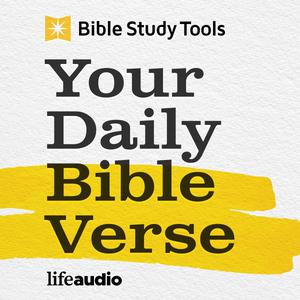 Your Daily Bible Verse
Your Daily Bible Verse
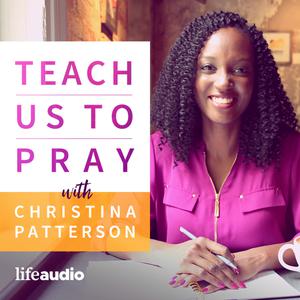 Teach Us to Pray
Teach Us to Pray
 Hearing Jesus: Bible Study, Daily Devotional, Scripture, Faith, Hear from God, Bible, Devotions
Hearing Jesus: Bible Study, Daily Devotional, Scripture, Faith, Hear from God, Bible, Devotions
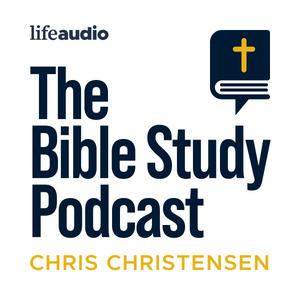 The Bible Study Podcast
The Bible Study Podcast
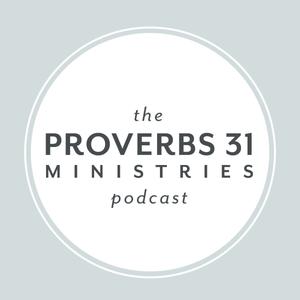 The Proverbs 31 Ministries Podcast
The Proverbs 31 Ministries Podcast